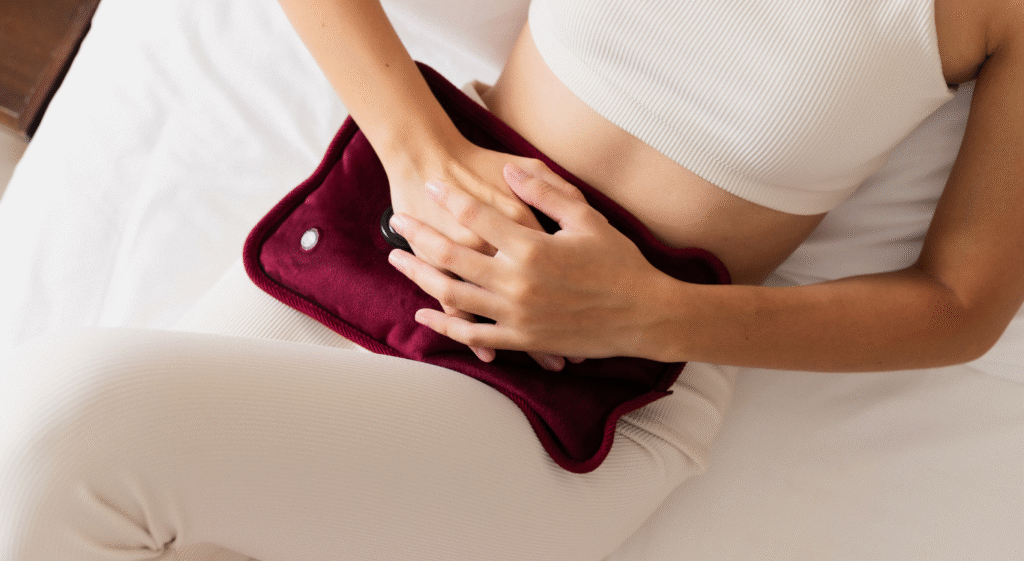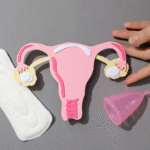Many women wonder whether eating curd during periods is good or not. This doubt comes mostly from traditional beliefs, where some people suggest avoiding cold foods during menstruation. Curd, being a dairy product and naturally cooling in nature, often falls into this category. But when we look closely, science and health experts have a different opinion.
Periods are a time when the body goes through hormonal changes, cramps, mood swings, and bloating. Food plays an important role in managing these symptoms. Curd is packed with nutrients like calcium, protein, and probiotics, which can actually help in keeping the body strong and the stomach light. However, the effect of curd may vary from person to person.
For some, it may soothe digestion, while others may feel slight discomfort if they are sensitive to cold foods. The key is to listen to your own body. If eating curd makes you feel fine, there is no medical reason to avoid it. In fact, it can support gut health and provide relief from acidity or bloating. The old belief of avoiding curd during periods is not strongly backed by science, making it more of a myth than a fact.
Health Benefits of Eating Curd During Periods
Curd is considered a healthy food in general, and the same applies during periods. It contains good bacteria that help improve digestion and reduce stomach-related issues. Many women experience acidity, indigestion, or bloating during menstruation. The probiotics in curd support gut balance and bring relief.
Another major benefit is calcium. During periods, some women face muscle cramps, back pain, and weakness. Curd, being rich in calcium, can reduce muscle stiffness and support bone health. Protein present in curd also gives energy and keeps you full for a longer time, which helps avoid overeating junk food.
Mood swings are also common during periods due to hormonal shifts. Curd helps in maintaining a healthy gut, and research shows that a good gut health is linked with better mood and lower stress. Eating a bowl of fresh curd with fruits or honey can make you feel lighter and happier.
Unless someone is lactose intolerant or very sensitive to cold foods, curd can be safely consumed. Instead of avoiding it completely, it is better to eat it in moderation. Choosing plain, fresh, and homemade curd is always healthier than packaged options.
Myths About Curd and Menstruation
One common myth is that eating curd during periods increases bleeding. There is no scientific proof for this claim. Curd does not affect the natural menstrual cycle or flow. It only supports digestion and provides nutrients.
Another belief is that curd being “cold” can worsen cramps or body pain. In reality, body pain during periods is mainly due to muscle contractions and hormonal changes, not because of food temperature. For most women, curd has no negative impact on cramps.
Some also say that curd can cause throat infections or colds if eaten during periods. While it is true that curd is cooling, having it at room temperature or with warm meals balances the effect. Eating it directly from the fridge may cause throat irritation, but this has nothing to do with menstruation specifically.
These myths are mostly cultural and passed on from older generations. While respecting traditions is important, it is equally necessary to understand the facts. Health experts generally suggest that unless curd causes discomfort, it can be included as a safe food during menstruation.
Best Ways to Eat Curd During Periods
If you enjoy eating curd, there are many ways to make it part of your diet during menstruation. The simplest way is to eat a bowl of plain homemade curd with your meal. You can also pair it with rice, paratha, or roti, depending on your taste.
Adding fruits like banana, papaya, or apple with curd makes a nutritious and tasty snack. This combination not only gives energy but also helps in digestion. Mixing a spoon of honey into curd is another good option, especially if you want something light and sweet.
For women who feel uncomfortable eating cold curd, buttermilk or lassi at room temperature can be better choices. These drinks keep you hydrated and reduce acidity. You can also add cumin, black salt, or mint leaves to make them more refreshing and digestion-friendly.
The only point to keep in mind is to avoid curd late at night during periods, as it may cause slight heaviness in some people. Eating it in the day or evening is always a better choice.
Expert Opinion on Eating Curd During Menstruation
Doctors and nutritionists agree that curd is not harmful during periods. Instead, it can help balance diet and provide relief from digestive issues. Experts say that most myths around curd are based on cultural habits, not science.
According to nutritionists, dairy products like curd give calcium, protein, and probiotics, which are essential during menstruation. They also suggest that women should focus on fresh curd rather than processed ones, as natural curd has better live cultures.
Gynecologists also highlight that diet during periods should be balanced. Along with curd, women should include green leafy vegetables, fruits, whole grains, and enough water. Avoiding oily and very spicy food is more important than avoiding curd.
The final advice from experts is simple—listen to your body. If curd makes you feel good, continue eating it. If you feel discomfort, reduce the amount or try other alternatives. There is no strict rule against curd during menstruation, making it a safe and beneficial food choice.
Conclusion
So, can we eat curd during periods? The answer is yes. Curd is healthy, light, and beneficial for most women during menstruation. It helps in digestion, provides calcium for reducing cramps, and supports mood balance.
The fear around curd during periods comes more from myths than facts. Science does not support the idea that curd increases bleeding, causes cramps, or harms women during menstruation. Instead, it shows that curd adds to overall wellness.
The best way is to eat curd in moderation, avoid very cold servings, and pair it with other healthy foods. Listening to your own body is always the most important step. What works for one person may not suit another.
At the end of the day, food should make you feel comfortable and happy. Curd, being a natural and nourishing food, can definitely be part of your diet even during periods.



